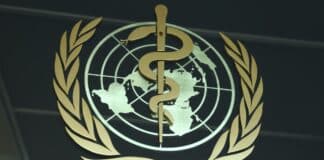Opposing mask mandates in schools has quickly become the new hot take of the week in America’s leading legacy newsrooms.
The New York Times, The Washington Post, NPR and The Atlantic all ran pieces this week arguing that mask mandates for schoolchildren are unnecessary, harmful, or both. NPR’s piece was more of the reporting variety, while the others were strictly opinion, but all of them shared a common thread: newly advocating for a position that some, particularly conservatives, have been calling for months and years.
In the NYT, columnist Michelle Goldberg wrote that she fears “in very liberal areas, a combination of extreme risk aversion and inertia means that school masking will persist indefinitely.”
Goldberg cited the case of Prince George’s County Public Schools CEO Monica Goldson, who this week essentially said that masks should stay on kids forever. She also acknowledges the mixed evidence on just how well masks actually work, particularly the cloth masks worn by a majority of Americans, and how necessary they are on the demographic of humans least likely to suffer from serious COVID-19.
In the Post, three doctors — infectious disease physicians Shira Doron and Westyn Branch-Elliman, along with Boston University School of Medicine professor Elissa Perkins — made the case that new guidelines from the Centers for Disease Control and Prevention (CDC) make forced masking obsolete.
The CDC’s acknowledgment that respirators like N95’s offer more protection than cloth and surgical masks means that masking can be made a personal choice, they wrote. This is because respirators protect the mask wearer, unlike lower quality masks, which are meant to protect people around the wearer. As those doctors now say, the old adage that “my mask protects you, your mask protects me” no longer applies.
Similarly, the Atlantic featured three doctors, Margery Smelkinson, Leslie Bienen and Jeanne Noble, laying out the scientific case against masking children in schools. They highlighted the fact that many of the world’s other developed countries, often held up by the left as examples of good governance, follow World Health Organization (WHO) guidelines.
The WHO explicitly recommends against kids 5 and younger wearing masks, and generally doesn’t recommend them for kids 6 through 11 either. The body says that not only are masks not particularly helpful to a group facing minimal risk from COVID-19, but that they are not “in the overall interest of the child.” The WHO also strictly advises against masking kids during physical activities, which is standard policy in some jurisdictions in the U.S.
Those three experts also pick apart some of the flawed science pushed by the CDC to recommend universal masking of children, including a study which some experts have said is “so unreliable that it probably should not have been entered into the public discourse.”
NPR’s report highlighted the plight of parents who have children that struggle with masks, either due to medical conditions or simply the normal, unfocused behavior of toddlers. It also touched on the political “Rorschach test” that are mask mandates, and whether learning that cloth masks don’t work well leads districts to strengthen mandates to require better masks or abandon them altogether.
The NPR piece included numerous subheads bolstering the anti-masking argument: good, non-cloth masks are hard to find; it’s hard for children to wear masks properly; masks can interfere with childhood development and socialization.
Case levels in the U.S. are on the decline, but are still higher than during any previous wave of the pandemic. None of the data and evidence used to make the anti-mandate case is particularly new, even if it’s now becoming more popular.
But, as NPR pointed out, there is a new political subgroup emerging that may be behind the change: the anti-mask, pro-vaccine group. That group may be politically influential headed into midterm season, and may have played a role in the election of new Republican Virginia Gov. Glenn Youngkin, who made one of his first acts in office the ending of school mask mandates.
President Joe Biden’s polling numbers on COVID-19 are tumbling, and a shift is happening at the same time. Only about one-third of schools in the country don’t have a mask mandate right now, according to NPR, but maybe that dam is about to break.






